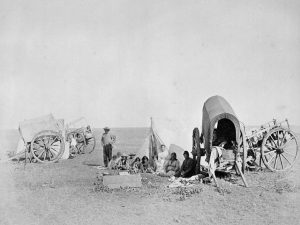Introduction

Indigenous People Globally
Indigenous Peoples are present all over the world. Their populations, languages, practices, and ways of life have often been decimated by colonizers. Many, however, have shown incredible resiliency and are reclaiming and celebrating the histories, reviving the languages and traditional ways of life, and lifting up the accomplishments of their peoples. The United Nations issued a declaration to affirm the rights of Indigenous Peoples worldwide, known as UNDRIP (United Nations Declaration on the Rights of Indigenous Peoples, 2007). Most (144) nations signed on to the Declaration, while 11 abstained, and 4 nations voted against it. Canada, the United States, Australia, and New Zealand all voted against the Declaration, but have since reversed their decisions and signed on.
You can read the UNDRIP (United Nations Declaration on the Rights of Indigenous Peoples1) document.
Section 1 will introduce you to the Indigenous Peoples in Canada, their histories, and their cultures. It will also answer some of the questions that people often ask about Indigenous Peoples and debunk some of the common myths and misconceptions.
Indigenous Peoples Atlas of Canada2
Topics
In Section 1 you will learn about:
- Aboriginal or Indigenous?
- Indigenous Peoples in Canada
- First Nations
- Métis
- Inuit
- Urban Indigenous peoples
- Demographics
- Acknowledging traditional territories
It should take around an hour to complete Section 1. Please complete the Locate Yourself activity first.
Activity: Locate Yourself (10 min)
Reflect on the area, city, or town where you live.
- Within whose traditional First Nations, Métis, or Inuit territory do you currently live, work, and play?
- How do you know?
- If you don’t know, spend some time researching this online. See Our Home on Native Land3 and others.
Media Attributions
‘Métis Camp’ (Library and Archives Canada) is licensed under a Public Domain License.
Notes
- United Nations Declaration on the Rights of Indigenous Peoples (https://undocs.org/A/RES/61/295)
- Indigenous Peoples Atlas of Canada (https://indigenouspeoplesatlasofcanada.ca/)
- Our Home on Native Land (http://native-land.ca)

